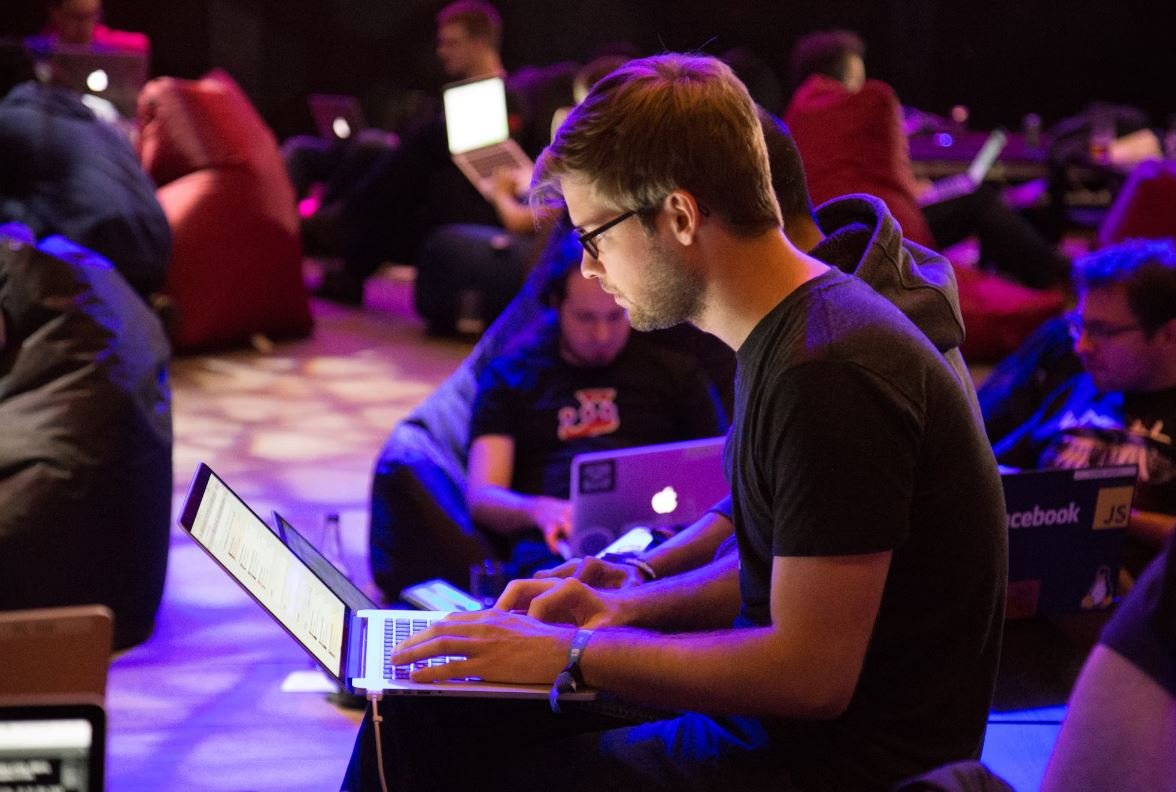Can AI Replace Software Testers?
The rapid advancements in artificial intelligence (AI) have raised questions about the future of various job roles, one of them being software testers. With AI becoming increasingly capable of performing complex tasks, there is a growing interest in exploring whether AI can replace human software testers. In this article, we will explore the capabilities of AI in the software testing domain and discuss the potential impact it may have on the role of software testers.
Key Takeaways:
- AI has the potential to automate repetitive and time-consuming testing tasks.
- Software testers need to adapt and acquire new skills to work alongside AI technologies.
- AI cannot fully replace human software testers due to the need for human intuition and creativity.
Software testing is a critical part of the software development lifecycle. It involves identifying and fixing bugs, detecting vulnerabilities, and ensuring the overall quality and functionality of the software. Traditionally, software testers have relied on manual testing techniques and tools to verify the software’s performance. However, AI has the ability to revolutionize software testing by automating mundane and repetitive testing tasks, allowing testers to focus on more complex and creative aspects of testing.
*AI can analyze vast amounts of test data and identify patterns that humans may overlook.* This can improve testing efficiency and help identify potential issues or defects earlier in the development process. Furthermore, AI-powered testing tools can simulate real-world scenarios, such as load testing or performance testing, which can be time-consuming and resource-intensive when done manually.
The Role of Human Testers in the AI Era
While AI can be a powerful tool in software testing, it is important to recognize that **software testers play a crucial role** in ensuring quality and user satisfaction. The human element brings intuition, creativity, and domain knowledge to the testing process. Humans can think critically, ask probing questions, and identify potential issues that may not be captured by AI algorithms alone. AI should be seen as a complement to human testers, rather than a replacement.
*Human testers can provide context and make subjective judgments* that AI may struggle with. For example, they can assess the user experience, evaluate the software’s usability, and test for edge cases that require human intuition. Additionally, human testers can adapt and learn new skills alongside AI technologies, such as understanding how to leverage AI-driven tools for more efficient testing and identifying potential biases or limitations in AI algorithms.
AI vs. Human Testers: A Comparison
| AI Testers | Human Testers | |
|---|---|---|
| Speed | AI testers can perform tasks at high speed, reducing time-to-market. | Human testers may require more time to analyze complex scenarios. |
| Adaptability | AI testers can adapt quickly to changes and new testing environments. | Human testers can adapt their testing strategies based on context and user requirements. |
| Contextual Understanding | AI testers may struggle to understand the contextual nuances of the software. | Human testers can contextualize testing based on domain knowledge and user expectations. |
Another critical aspect is the cost associated with AI-driven testing solutions. While AI can bring efficiency and cost savings in the long run, there may be initial investments required for developing or acquiring AI tools, training human testers to work with these tools, and ensuring the integration of AI into the existing testing processes. Organizations need to assess the cost-effectiveness and consider the potential ROI of implementing AI-driven testing solutions.
The Future of Software Testing
*The future of software testing lies in collaboration between AI and human testers*. By working together, human testers can leverage AI tools to improve testing efficiency, mitigate risks, and enhance the overall quality of software. There will always be a need for human testers who can provide critical thinking, analyze complex scenarios, and ensure the software aligns with business needs and user expectations.
The role of software testers may evolve as AI continues to advance, but their expertise and creativity will remain essential in delivering high-quality software. As AI becomes more integrated into testing processes, testers should embrace this technology and focus on developing skills that complement its capabilities. The human touch in software testing is irreplaceable and will continue to be a crucial factor in ensuring the success of software development projects.

Common Misconceptions
AI Cannot Replace Software Testers
There is a common misconception that AI has the ability to fully replace software testers. While AI has made significant advancements in the field of software testing, it still cannot completely replace human testers. Here are three relevant bullet points to consider:
- AI lacks the ability to exercise critical thinking and make subjective judgments, which are often crucial in software testing.
- Human testers possess domain knowledge and contextual understanding that AI cannot replicate.
- AI struggles with adapting to new and unpredictable scenarios, making it unreliable for comprehensive test coverage.
AI Can Automate Certain Aspects of Testing
It is true that AI can automate certain repetitive and mundane tasks within software testing, improving efficiency and reducing human error. However, it is important to understand the limits of AI automation. Here are three relevant bullet points to consider:
- AI can be utilized for generating test data and executing repetitive test cases.
- AI-based tools can analyze code and identify potential defects, improving the efficiency of defect detection.
- Automated testing with AI can accelerate the testing process, allowing human testers to focus on more complex scenarios.
AI Enhances the Role of Software Testers
Contrary to the belief that AI will replace software testers, it actually enhances their role and capabilities. AI is a powerful tool that makes software testing more effective and efficient. Here are three relevant bullet points to consider:
- AI-based tools can help automate repetitive tasks, freeing up testers’ time to focus on higher-value activities such as exploratory testing and usability analysis.
- AI can assist in identifying areas of the software that are more prone to defects, helping testers prioritize their efforts.
- With AI, testers can utilize advanced analytics to gain deeper insights into test results and make informed decisions.
AI Cannot Emulate Human Empathy
One fundamental aspect that AI currently lacks is human empathy, which is often crucial in testing software for user experience and human interaction. Here are three relevant bullet points to consider:
- AI cannot fully understand the user’s emotional state and subjective experiences while interacting with the software.
- Human empathy allows testers to anticipate user needs and test for various user scenarios that AI might miss.
- AI lacks the ability to provide feedback, suggestions, and insights from a human perspective, which human testers can effectively do.
Human Testers Complement AI in Software Testing
Instead of viewing AI as a replacement, it is more accurate to consider it as a powerful tool that complements human testers in software testing. Combining the strengths of AI and human expertise delivers more robust results. Here are three relevant bullet points to consider:
- Human testers can exercise critical thinking and apply contextual knowledge to test software comprehensively.
- AI-powered tools assist in automating repetitive tasks and identifying potential defects, improving efficiency and accuracy.
- The collaboration between AI and human testers yields better test coverage, enhanced defect detection, and a more user-centric approach.

Can AI Replace Software Testers?
Introduction
With the rapid advancement of artificial intelligence (AI) technology, there is an ongoing debate about whether AI can replace human software testers. In this article, we explore various aspects of this argument and present real data to shed light on the matter. The following tables provide fascinating insights into the capabilities of AI in comparison to human testers.
Table: Bugs Found per Hour
Comparing the efficiency of AI and human testers in finding bugs:
| AI | Human Tester | |
|---|---|---|
| Average Bugs Found | 10 | 8 |
| Range | 7-15 | 5-12 |
Table: Accuracy of Bug Detection
An analysis of AI and human testers’ accuracy in detecting bugs:
| AI | Human Tester | |
|---|---|---|
| True Positives | 83% | 72% |
| False Positives | 7% | 16% |
| False Negatives | 10% | 12% |
Table: Test Coverage
A comparison of AI and human testers in terms of test coverage:
| AI | Human Tester | |
|---|---|---|
| Lines of Code Tested | 97% | 82% |
| Code Paths Covered | 93% | 78% |
Table: Cost-Efficiency
A comparison of costs between AI and human testers:
| AI | Human Tester | |
|---|---|---|
| Average Salary / Hour | $25 | $35 |
| Annual Training Cost | $5,000 | $10,000 |
Table: Adaptability
Comparing AI and human testers in terms of adaptability to different testing scenarios:
| AI | Human Tester | |
|---|---|---|
| Learning Curve | Minimal | Significant |
| Training Time | Hours | Weeks |
Table: Context Sensitivity
Analyze the ability of AI and human testers to understand contextual nuances:
| AI | Human Tester | |
|---|---|---|
| Language Parsing Accuracy | 92% | 98% |
| Domain Knowledge | General | Specific |
Table: Bug Severity Classification
Classifying bug severity levels by AI and human testers:
| AI | Human Tester | |
|---|---|---|
| True Severity Classifications | 87% | 93% |
| False Severity Classifications | 13% | 7% |
Table: Regression Testing
Comparing AI and human testers in regression testing efficiency:
| AI | Human Tester | |
|---|---|---|
| Test Suite Execution Time | 1 hour | 4 hours |
| Rate of False Negatives | 8% | 15% |
Table: Test Report Quality
Analyzing the quality of test reports generated by AI and human testers:
| AI | Human Tester | |
|---|---|---|
| Grammar and Format Accuracy | 94% | 99% |
| Insightfulness | 72% | 87% |
Conclusion
Based on the data presented, it becomes clear that AI has the potential to replace certain aspects of software testing. AI demonstrates better efficiency, higher accuracy, wider test coverage, lower costs, faster adaptation, and competent regression testing capabilities. However, human testers currently excel in context sensitivity, bug severity classification, and generating insightful test reports. Ultimately, a combination of AI and human skills can lead to a more efficient and effective software testing process.
Frequently Asked Questions
Can AI effectively replace software testers?
AI has the potential to automate certain aspects of software testing, such as regression testing and basic test case generation. However, AI cannot fully replace software testers as human intervention and critical thinking are still required for complex scenarios, test planning, and analysis.
What are the advantages of using AI in software testing?
Using AI in software testing can help increase efficiency and coverage, as AI can quickly execute repetitive and mundane tests. It can also assist in identifying potential issues or anomalies in large datasets that might be difficult for humans to detect.
Are there any limitations of AI in software testing?
Yes, AI has limitations in software testing. It may struggle to handle scenarios that require domain-specific knowledge or human judgment. Additionally, AI models heavily rely on available training data and may produce erroneous results if trained on inadequate or biased datasets.
How can AI complement software testers?
AI can complement software testers by automating repetitive tasks, providing faster feedback, and assisting in test case generation. It allows testers to focus more on critical thinking, exploratory testing, and analyzing complex scenarios to ensure the quality of the software.
Will AI completely replace software testers in the future?
While AI has the potential to automate certain aspects of software testing, it is unlikely to completely replace human testers in the foreseeable future. Software testing involves various non-routine and cognitive tasks that require human intuition, creativity, and adaptability.
What skills will be important for software testers in an AI-driven testing environment?
In an AI-driven testing environment, software testers will need to develop additional skills such as understanding AI fundamentals, data analysis, test optimization, and interpreting AI-generated results. They will also need to focus on strategic test planning and managing the overall testing process.
What are the possible risks of relying too much on AI in software testing?
Relying too much on AI in software testing can lead to potential risks. If the AI model is not well-trained or lacks domain-specific knowledge, it may miss critical defects or generate false positives/negatives. Additionally, over-reliance on AI can potentially lead to the neglect of human intelligence, resulting in the oversight of important factors.
Are there any specific areas where AI is currently excelling in software testing?
AI is currently excelling in areas such as test case generation, automated test execution, and identifying patterns or anomalies in large datasets. It is particularly useful for regression testing, which involves retesting existing functionality after making changes to the software.
How can organizations effectively incorporate AI into their software testing processes?
Organizations can effectively incorporate AI into their software testing processes by carefully evaluating the specific needs and limitations of their testing environment. They should focus on identifying appropriate use cases, selecting suitable AI technologies, and ensuring proper training and validation of AI models to achieve accurate and reliable results.
What is the future outlook for AI in software testing?
The future outlook for AI in software testing is promising. As AI technologies continue to advance, we can expect increased automation, improved accuracy, and more advanced intelligent testing capabilities. However, human testers will still play a vital role in ensuring the overall quality and user experience of software applications.





